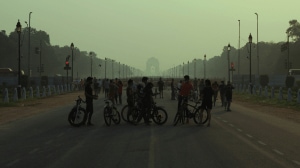No power, no TV at home, she will run for India in Beijing
Preeja Sreedharan’s family will not get to watch her 10,000-metre Olympics race on August 15

When Preeja Sreedharan finishes her 10,000-metre race in Beijing’s National Stadium on August 15, that proud moment will not unfold on a TV screen in her house in Kerala’s Idukki district.
Her small house on the Mullakkanam hills does not have an electricity connection, let alone a TV set.
It’s been a tough track for Preeja. She lost her father when she was four and her mother Ramani worked in neighbours’ houses to bring up her three children. When Preeja began doing well as an athlete, her brother Pradeep had to drop out of school to start working.
Preeja’s success—and her job as a clerk with the Southern Railways—has helped. “We had to depend heavily on Preeja’s cash awards to pull along. But for that money, we would have been forced to sell this small plot, our only property,” says Pradeep.
But the family still struggles for basic amenities. Drinking water has to be carried uphill from a neighbour’s house. The mud house, which has developed cracks, turns a nightmare when relentless monsoon showers hit its aluminium-sheet roof. Water seeps in and the wind threatens to blow the roof away.
Even in the midst of endless problems, Preeja, a national record-holder, has given them enough occasions to celebrate. “The whole village is praying for my daughter. We are confident that Preeja would return with a medal from the Olympics,” says Ramani.
Her biggest regret, though, is that she has not been able to showcase all the awards and medals her daughter has brought home. They are kept locked in a wooden cupboard. “We can’t afford even a presentable showcase,” says Ramani, squatting on the mud floor of the house, coated with cow-dung.






- 01
- 02
- 03
- 04
- 05

























